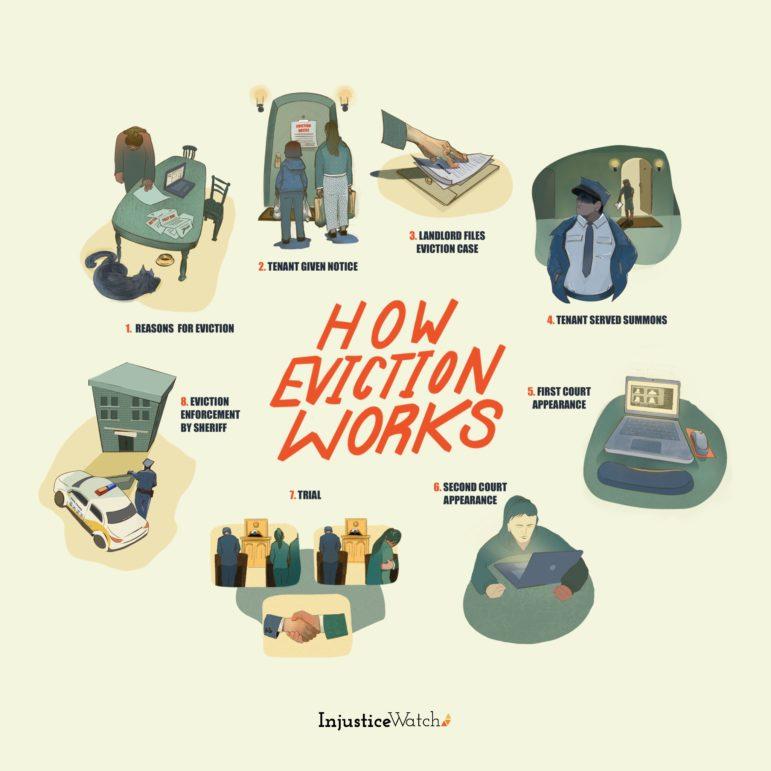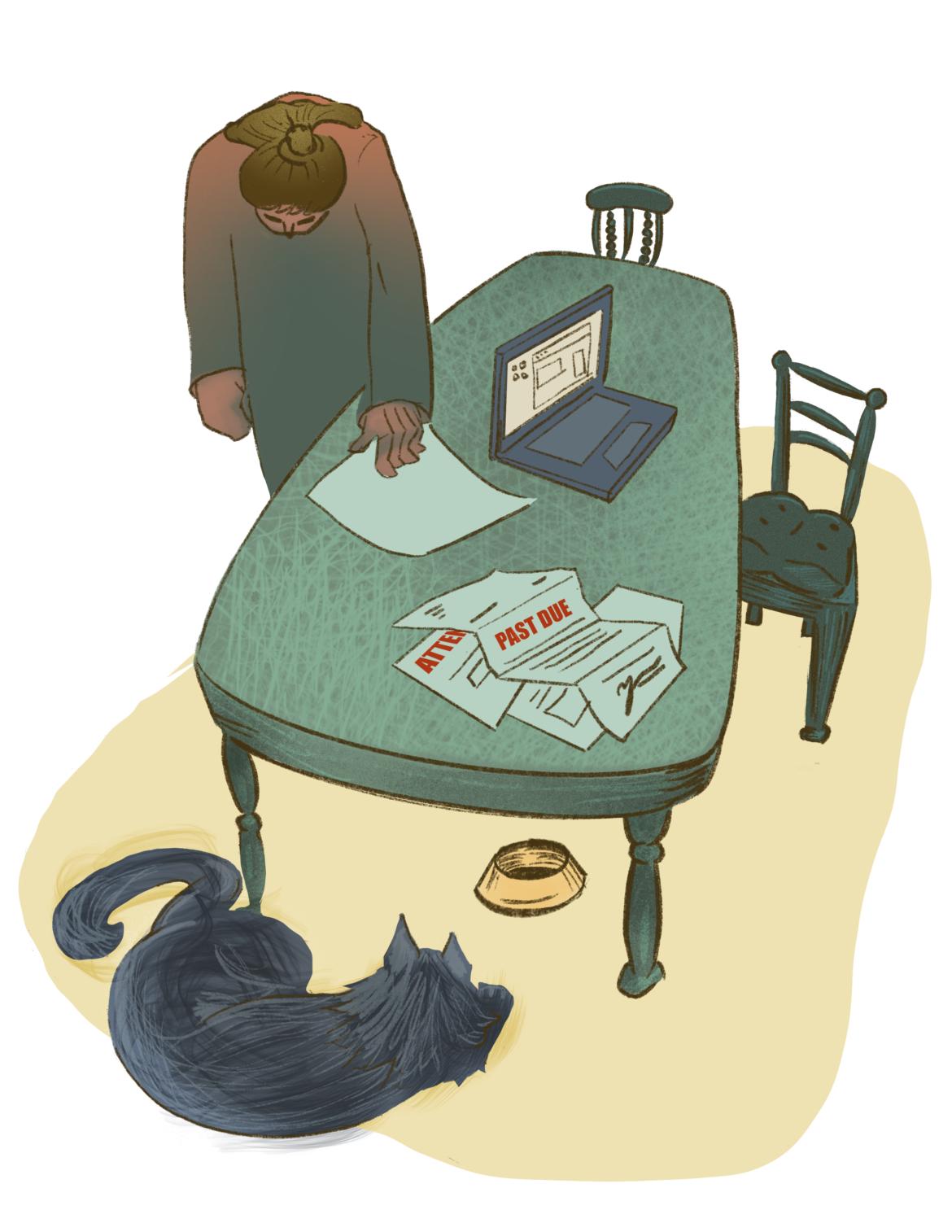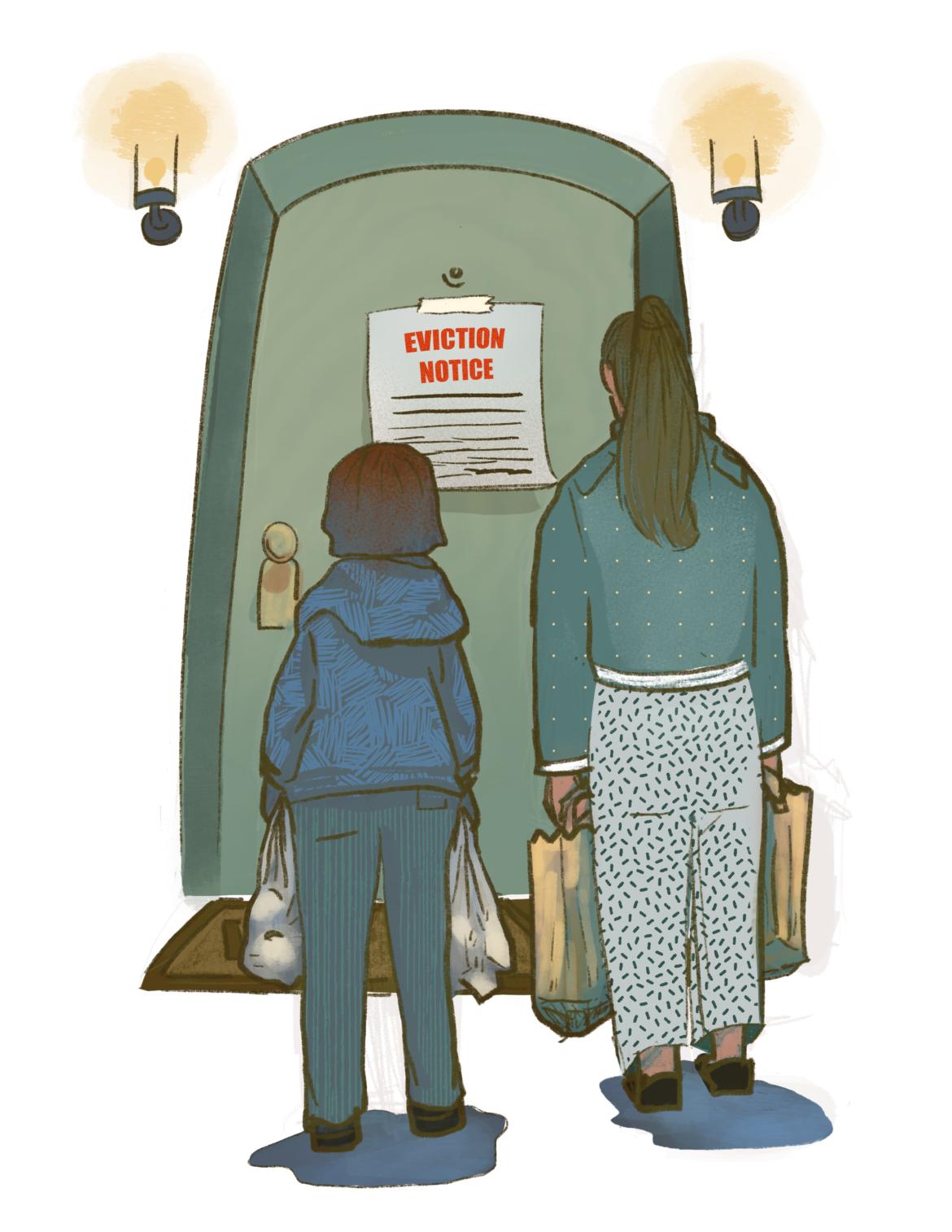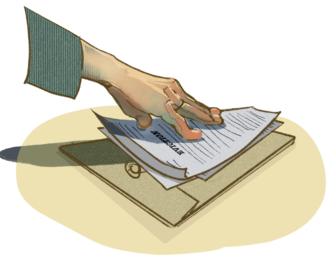
For tenants in Cook County, eviction can be a daunting legal process. Unlike landlords, tenants often lack the resources and guidance of attorneys to help them navigate this challenging situation. Surprisingly, between 2010 and 2019, only 11% of Chicago tenants facing eviction lawsuits had legal representation each year, while 81% of landlords did, according to the Lawyers’ Committee for Better Housing.
However, programs introduced during the Covid-19 pandemic in the Cook County Circuit Court aim to level the playing field. The Early Resolution Program now offers an automatic continuance for renters at their first court appearance, providing them with valuable resources such as legal aid and rental assistance. This initiative has been put in place to help tenants avoid eviction judgments.
Moreover, the city of Chicago has recently launched a right-to-counsel pilot program, allocating $8 million from the federal stimulus package. While this program is not yet fully operational and does not cover all tenants facing eviction, its goal is to double the number of tenants who have access to legal representation in the future. This initiative is in line with other cities, including Cleveland, Philadelphia, and New York City, that already guarantee attorneys for low-income defendants in eviction cases.
The Importance of Showing Up to Court
To access the assistance provided through these programs, tenants must attend court proceedings. Michelle Gilbert, legal and policy director at the Lawyers’ Committee for Better Housing, emphasizes the critical nature of attending court: “You can get hooked up with an attorney who can give you advice. And the way to do that is by going to court.” Additionally, tenants facing eviction should contact Cook County Legal Aid for Housing and Debt as soon as they receive a court summons to apply for rental assistance.
As Injustice Watch continues to monitor and cover eviction court proceedings and efforts to keep Cook County residents in their homes, it is essential to understand the process and be prepared. Let’s take a closer look at how eviction works in Cook County.
Eviction Initiation in Cook County
In Cook County, eviction can be initiated under the following circumstances:
- The tenant falls behind on rent.
- The tenant violates the lease.
- The landlord wants the tenant out.
It is worth noting that in the absence of rent control and “just cause” eviction laws, raising rents or refusing to renew a tenant’s lease can be done without providing any specific reason. If a tenant refuses to vacate the premises, the landlord can then file for eviction.
Within the City of Chicago, the landlord must provide “fair notice” before raising the rent or deciding not to renew a lease. This notice period ranges from 30 days for month-to-month tenants to 120 days for tenancies exceeding three years. In most suburban areas of Cook County, the landlord must provide a 60-day notice.
The landlord delivers a notice to the tenant instructing them to:
- Pay late rent within five days.
- Remedy a lease violation within ten days.
- Find a new place within 30 to 120 days, depending on their length of residency.
If the tenant complies with the notice or if the landlord fails to give proper notice, the eviction should not proceed.
Understanding the Eviction Process

In 2019, nearly 30,000 evictions were filed in Cook County. Although new eviction filings decreased during the pandemic due to eviction moratoriums, they have since rebounded. As of July 31, more than 16,000 evictions had already been filed in Cook County this year.
4. Tenant Served Court Summons
Sheriff’s deputies attempt to deliver the summons in person to someone aged 13 or older at the unit. If this fails, the landlord can use a private company for delivery or, with the judge’s permission, post a summons at the courthouse and mail a copy to the tenant.
5. First Court Appearance

Most hearings continue to be conducted virtually, with the option to appear in person at the courthouse. Zoom links for Cook County courtrooms are available online.
During the first hearing:
- Tenants without lawyers are referred to legal aid, rental assistance, and/or court-appointed mediation.
- The case is continued for 14 days, even if the tenant does not appear. If the tenant attends, the case is usually continued for 28 days.
6. Second Court Appearance
During the second hearing in an eviction case, several outcomes are possible:
- Case Dismissed: If the parties reach an agreement through rental assistance, a payment plan, a move-out date, or other means.
- Case Continued: If the parties agree to more time.
- Case Sent to Trial: If the parties cannot reach an agreement, the judge sets a trial date.
- Default Judgment for Eviction: If the tenant fails to appear again, the judge issues an eviction order.
7. Trial

The majority of eviction cases in Cook County are heard by judges. Requests for a jury trial should be filed before the second court date. After the judge or jury hears the evidence, the case can be resolved in several different ways:
- Case Dismissed
- Tenant Agrees to Move Out: Often done to avoid eviction.
- Tenant Can Stay: If they secure rental assistance, reach an agreement, or successfully present defenses. In Chicago and most suburban areas of Cook County, tenants also have a one-time “pay and stay” right, allowing them to pay all overdue rent, plus court costs, to obtain a dismissal.
- Judgment for Landlord: The judge will typically order a stay of eviction to provide the tenant with time to move out. The duration of the stay is at the judge’s discretion, and the tenant can request an extension.
As of 2019, an average of 60% of eviction cases in Chicago each year resulted in eviction judgments, including default judgments. If both the tenant and landlord agree, a judge can order the eviction file to be sealed.
8. Eviction by Sheriff
Once the stay period expires, the landlord files an eviction order with the sheriff. From 2017 to 2019, the median time for the sheriff to carry out an eviction was 48 days. However, many tenants move out before the eviction is enforced. Evictions proceed during winter, except for around Christmas and New Year’s Day, or when temperatures drop below 15 degrees.
Legal Resources for Those Facing Eviction
If you are a Cook County resident facing eviction or other housing-related issues, several organizations offer advice and legal assistance:
- Cook County Legal Aid for Housing and Debt – Call the hotline at 855-956-5763, Monday to Friday from 9:00 AM to 4:30 PM.
- Lawyers’ Committee for Better Housing – Call 312-347-7600 for intake or referrals.
- Metropolitan Tenants’ Organization – Call the hotline at 773-292-4988, Monday to Friday from 1:00 PM to 5:00 PM.
For more information about the eviction court process in Cook County and additional legal resources for people facing eviction, you can download a print version of this explainer.
Remember, attending court and seeking assistance from these organizations is crucial to protect your rights as a tenant in Cook County. Let’s work together to ensure a fair and just process for all residents.



